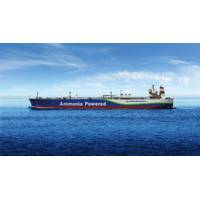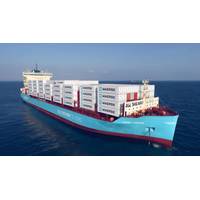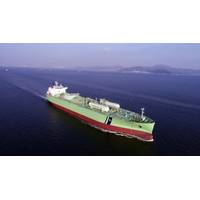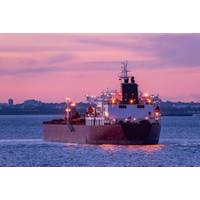Afreximbank, an oil and gas investor, has allocated $3 billion to support local refineries
A senior executive revealed that the African Export-Import Bank, (Afreximbank), which is a major investor in oil-and-gas projects, had set aside $3 billion for financing the purchase of refined goods within Africa, as part of plans to increase refining capacities. Bank and analysts say that Africa exports 80% of its crude oils and 45% of its natural gas, making it heavily dependent on imported refined products. The energy landscape in sub-Saharan Africa is characterized by aging refineries and a lack of storage infrastructure.
TotalEnergies warns that indirect emissions may increase as the company aims to sell gas

TotalEnergies, a French energy company, said in its sustainability report on Thursday that plans to sell more gas in the coming years would increase indirect CO2 emissions. TotalEnergies said that global emissions will also fall as a result of its clients moving away from dirty fuels. In 2024, the French oil giant emitted 376 millions metric tons CO2-equivalent. Of this, 342 million tons was indirect emissions so-called Scope 3, which comes from clients burning fuels purchased. This is a slight decrease from the 386 tons CO2-equivalent that was produced in 2023.
Nigeria’s Refining Revolution is Reshaping West Africa’s Energy Landscape

The launch of the Dangote Refinery near the Port of Lagos presents an exciting opportunity to transform the energy and shipping markets in West Africa. And it stands to boost Nigeria’s role as an influential player in the global oil industry, fostering economic growth and regional development.Nigeria’s standing in the global energy landscape is getting a boost with domestic refining capacity expanding in 2025. The Dangote Refinery near Lagos presents a transformative opportunity…
Exports of crude oil by Mexico's Pemex rose 33% from January to February

The crude oil exports of the Mexican state energy company Pemex increased 33% from January to February, recovering from the drop in the previous month but still being down 25% when compared with February 2024. Pemex published data late Tuesday showing that crude exports reached 709,793 barrels a day (bpd) in February. About 60%, or 428 357 bpd of these exports went to the United States. The majority of this was the Maya heavy crude blend. Crude exports fell by 44% in January compared to the same period last year, reaching their lowest level for decades.
Russians warned not to panic about a 'gas cloud" in a city near a plant that was struck by Ukraine
The Governor of Russia's Astrakhan Region told its residents to not panic after the main city was covered in a natural gas cloud on Wednesday. Its main city is located near a large gas chemical complex which was attacked this week by Ukrainian drones. The gas smelled by the public was caused by the restart of production at a plant in the south of the city of Astrakhan. Astrakhan has about 475,000 residents. "Dear Citizens, this morning, the city was covered with a cloud that smelled like natural gas. It is produced after processing, and it has a distinct smell," he wrote in Telegram.
New England grid oil-fired electricity surges 10-fold during cold weather

New England's electricity grid relied heavily on oil-fired generators during a cold snap in January, with a surge of more than 10 times the previous year. New England's electric grid produces more greenhouse gases when power plants use more fuel oil. This is in contrast to times when cleaner fuels were more common. Gas is the dominant fuel in New England, but generators often switch to alternative fuels when gas prices rise or supplies become scarce. According to EPA statistics…
Mexico's crude and condensate production in December drops by 12% compared to the previous year
The Mexican state-owned oil company Pemex announced on Tuesday that its liquid hydrocarbons production in December fell 12% compared to a year ago, its lowest level of the year. It also missed its government target for the third consecutive month. In December, crude and condensate output averaged 1,62 million barrels per days (bpd), down from its previous record high of 1.65 million bpd. The government has set a target of 1.8m bpd. Crude oil production fell 13% to 1.35 million barrels per day in December, the lowest in over 40 years.
The US sanctions against Russia have caused a spike in global diesel prices
Analysts and LSEG data indicate that global diesel prices and refinery margins increased following the latest round U.S. sanctions against Russia's oil market on the expectation of tightening supplies. On Jan. 10, the United States imposed their toughest sanctions yet against Russian producers and tanks to reduce the revenue of the No. 2 oil exporter in world. The United States used the revenue of Russia's No. 2 oil exporter to fund its war in Ukraine. Many of the newly targeted vessels, which are part of a shadow fleet, were used to transport oil to India and China.
NW Europe Fuel oil Imports at 3-year High
A rush to replenish scarce supply of high-sulphur fuel oil (HSFO) pushed Northwest European imports of residual fuel oil to their highest in three years in November, analysts told Reuters.The Amsterdam-Rotterdam-Antwerp (ARA) area, Europe's main trading and refining hub, received around 450,000 barrels per day (bpd) of all types of fuel oil in November, the highest monthly volume since November 2021.That compared with an average of 332,000 bpd over January-October this year…
In 2025, the global diesel price will be supported by refinery closures
Analysts and traders said that the global diesel market would likely see a price boost in 2025 due to the closing of around 1% of the refining capacity. This will offset the current weakness of the market and the structural downward pressure caused by the shift towards cleaner fuels. Markets end 2024 in a shaky state, despite the peak season demand. Margins in key energy hubs around the world, such as Singapore, Northwest Europe, and the Gulf of the United States, have fallen from November's high levels, due to the return of some refineries after maintenance shutdowns.
Germany's chemical lobby calls for regulatory reform and growth agenda
VCI, the industry lobby group in Germany, said that to achieve climate neutrality while remaining competitive and improving its performance it is necessary for regulation changes. VCI, which published two of its own studies, said that the crises in the last few years had left a mark on the balance sheet of chemical and pharmaceutical firms. Boston Consulting Group, in a study on the mood of the industry, found that nearly three-quarters of respondents are not likely to invest in new sites and plants in Germany.
Egypt reduces renewable energy targets to 40% by 2040, but keeps natural gas as the main focus
The Egyptian government has revised the renewable energy goal for 2040 from 58% to 40%, said Petroleum Minister Karim Badayi on Sunday. He also stressed that natural gas would remain an important part of Egypt's energy mix in years to come. Egypt committed to increasing renewable energy production by 42% to its energy mix before hosting the COP27 summit in 2022. Later, this target was advanced to 2030. Then-Electricity minister Mohamed Shaker announced in June 2024 an ambitious plan for this to reach 58% by the year 2040. This target has now been abandoned.
EIA: Harvest season will boost US demand for distillate fuel oil in autumn
The U.S. Energy Information Administration stated on Friday that the consumption of distillate fuel oil is expected to rise in autumn, as diesel-powered equipment is used for harvesting and transporting crops. EIA stated that the EIA has found that the harvest peaks in mid-October, and continues through November. This coincides with the beginning of winter heating season, which also drives demand for distillate fuel oil. The weak demand for diesel in the United States has led to a sharp decline in refiners' margins.
Cyprus and Greece sign an agreement on the 'world's largest' subsea cable
The energy ministers of Greece and Cyprus announced on Saturday that they had signed a Memorandum of Understanding (MoU), which will allow them to proceed with the construction of a submarine electric cable connecting continental Europe to East Mediterranean. The Great Sea Interconnector cable (GSI) will connect transmission networks in Europe with Cyprus, a project that costs 1.9 billion euro ($2.12 billion), later extending to Israel. The project's promoters claim that it will be the "world's longest" high-voltage cable when completed…
New refineries bring down profits for global refiners
Oil refiners across Asia, Europe, and the United States have seen their profitability drop to multi-year-lows. This is a significant downturn in an industry which had previously enjoyed booming returns following the pandemic. It also highlights the global slowdown. This weakness is another sign of a softening consumer and industrial demand in China due to the slowing of economic growth and increasing penetration of electric cars. The pressure on prices has been exacerbated by the addition of new refineries in Africa, Asia and the Middle East.
Sources say that Cyprus is considering ending the monopoly on gas imports to tackle project delays.
Cyprus is looking for a way to quickly resolve the serious delays that have been experienced in getting natural gas to the market. The efforts to introduce natural gases to the local market has been plagued with delays since years. The latest setback was a legal dispute between Cyprus and a Chinese group over a half finished liquefied gas import terminal (LNG). Cyprus, despite finding its own gas offshore in 2011, currently relies primarily on heavy fuel oil for electricity generation. 77% of this is produced by the dominant Electricity Authority of Cyprus.
Japan Takes the Lead on Ammonia as Maritime Fuel

Late last year Japanese maritime leaders – Nippon Yusen Kabushiki Kaisha (NYK), Japan Engine Corporation, IHI Power Systems Co., and Nihon Shipyard Co., Ltd. – signed a series of contracts to buid the world's first ammonia-fueled medium gas carrier (AFMGC) equipped with Japan-make engines. The target is a completed ship by November 2026.While the project is significant, hurdles remain, namely:While development work is underway, today there is not yet a dual-fuel ammonia engine on the market…
Shipping Rivals CMA CGM, Maersk to Collaborate on Green Fuels

Container shipping giants CMA CGM and Maersk said on Tuesday they will cooperate in efforts to reduce emissions in the sector, including by supporting the use of methanol and aiding research into potential fuels like ammonia. The shipping industry is grappling with which fuels and vessel technology to adopt on a large scale to meet an objective of net zero emissions by around the middle of the century. Danish group Maersk has focused on so-called green methanol and last week announced the creation a new company to produce fuel.
LPG: Dual-Fuel Engines Prove Their Worth

BW LPG has demonstrated the value of dual-fuel LPG operations beyond the company’s initial aim of meeting IMO 2020 Sulphur Cap regulations.In October 2020, the LPG carrier BW Gemini became the first very large gas carrier (VLGC) to have its low-speed main engine converted to an LPG dual-fuel engine. The project started several years earlier, sparked by Oslo-listed BW LPG’s preparations for the IMO’s 2020 Sulphur Cap regulations.Compared to heavy fuel oil, LPG reduces Sox emissions by approximately 97%…
US Steps Up Heavy Crude Imports

U.S. refiners last month imported the most heavy crude in nearly two years, customs data showed, as they cranked up motor fuel production and sought to replace sanctioned Russian oil.Higher heavy-crude imports are common in summer-driving months, but this year's increase comes as the Biden administration is calling on for refiners to ramp up output and shave profit margins to ease soaring prices. The administration has asked for a parley to explore further efforts.Heavy crudes…
